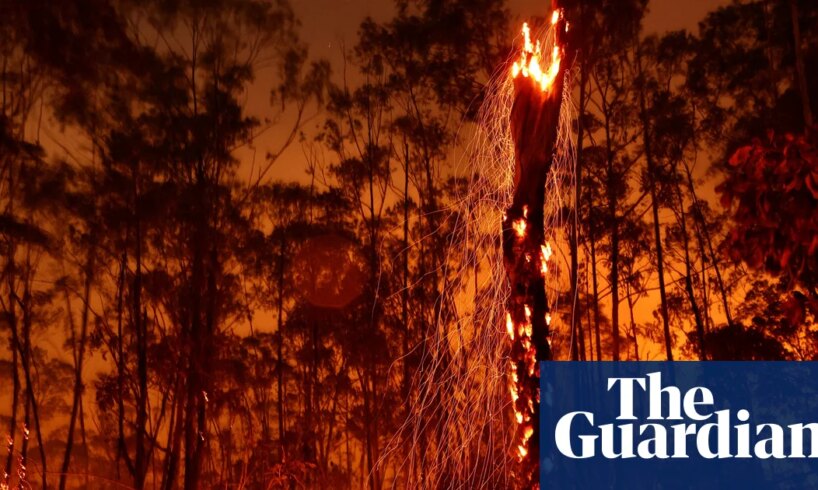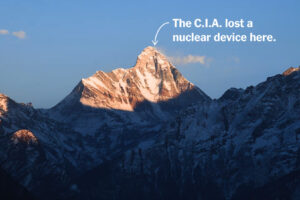
Recently drafted climate plans from scores of countries fall drastically short of what is needed to stave off the worst effects of climate breakdown, analysis has shown.
More than 60 countries have so far submitted national plans on greenhouse gas emissions to the UN, setting out how they will curb carbon for the next decade.
Taken together, these plans would cut carbon by only about 10% by 2035 compared with 2019 levels. This is only about a sixth of the drop in global emissions needed to limit global heating to 1.5C.
Simon Stiell, the UN’s top climate official, said: “Countries are making progress and laying out clear stepping stones towards net zero emissions. We also know that change is not linear, and some countries have a history of overdelivering.”
But progress was not happening fast enough, he added. “We have a serious need for more speed and for helping countries take stronger climate actions. That acceleration must start now.”
The UN published its assessment of national plans – known as nationally determined contributions (NDCs) under the 2015 Paris climate agreement – on Tuesday, but those of several significant countries were missing. China and the EU have yet to detail their NDCs, though they have made announcements indicating their emissions-cutting targets.
China’s pledge to cut its carbon output by between 7% and 10% of its peak by 2035 was widely denounced as too weak, while the EU has been squabbling over its commitment to a possible range of 62% to 72.5% within the decade.
Stiell’s estimate of a 10% reduction included China and the EU, though the formal assessment did not. The estimate also included an NDC submitted by the US in the final days of Joe Biden’s administration, which has little chance of being followed as Donald Trump has vowed a second withdrawal from the Paris agreement.
The UN’s assessment, known as the annual “synthesis report”, did not include an estimate of projected global temperature rises if the NDCs are fulfilled. However, they would certainly not be adequate to hold temperatures to 1.5C above preindustrial levels, the main goal of the Paris agreement.
The 1.5C threshold has been exceeded in the past two years, but this would need to be maintained for several more years before it is judged a lasting breach.
Heads of government will meet in Brazil next week to discuss the climate crisis before the Cop30 UN summit, which will take place in Belém, at the mouth of the Amazon, for two weeks from 10 November.
Their task will be to show how the world can be put on track to meet the Paris goals, despite the inadequacy of the NDCs. Brazil also wants to focus on the financial assistance needed for developing countries to curb their emissions and cope with the effects of the climate crisis.
The meeting is likely to be stormy, given the tense geopolitical situation. Trump will not attend, but his shadow will be felt. He has dismantled renewable energy projects across the US and vowed a resurgence of coal and other fossil fuels.
Gareth Redmond-King, the head of the international programme at the Energy and Climate Intelligence Unit thinktank, said: “These new national pledges move the world further and faster, building on a decade of momentum from the Paris agreement, to start bending the emissions curve downwards at last. But even with net zero targets covering over four-fifths of the global economy, it remains clear pledges are not yet enough, nor progress fast enough, to deliver the Paris goals.
“This sets the scene for the job ahead at Cop30 where nations will need to turn attention to delivery of these pledges if they are to get us on track for net zero – the only solution to tackling climate change and limiting more costly and dangerous impacts into the future.”
Steffen Menzel, the programme lead for climate diplomacy and geopolitics at the E3G thinktank, said: “The synthesis report underscores the urgent need for leadership and coordination ahead of Cop30 in Belém. While some developed and developing countries are providing clear examples to follow, delays and lacklustre pledges from major emitters such as the EU and China have undermined the effectiveness of the Paris agreement.”
Keir Starmer will attend the leaders’ summit before Cop30 next week, as will Prince William. The UK’s NDC was one of the first to be submitted and has been broadly judged as strong. However, the government must submit its domestic plans on carbon this week, which will be a tougher test – there is doubt over whether the core target of decarbonising the electricity sector by 2030 can be reached without sharp changes of policy.





